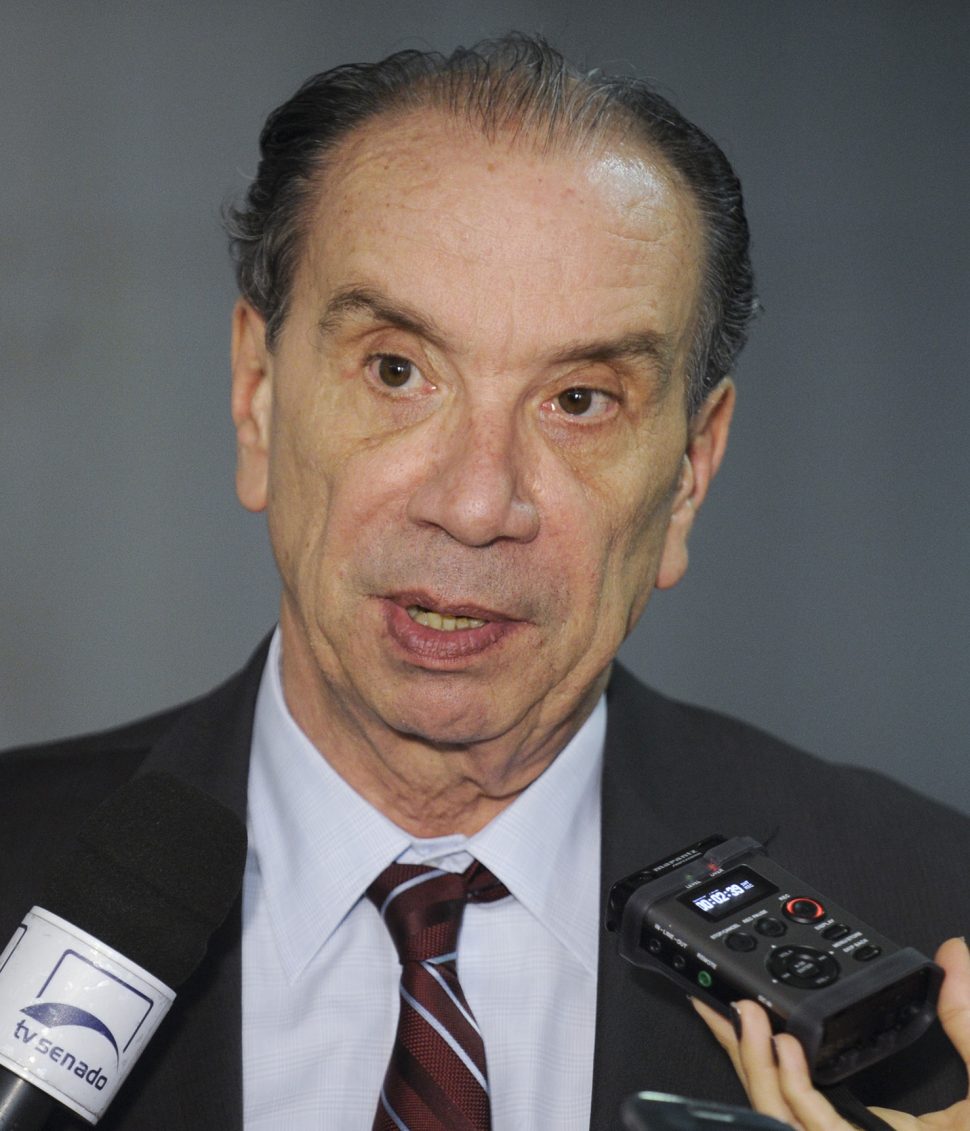Agreed timelines on matters related to the development of the Linden to Lethem Road and cooperation on Venezuela’s refugee crisis were among the issues discussed when the foreign affairs ministers of Guyana and Brazil met yesterday.
Other issues included the International Road Transport Agreement and trade and investment matters, the Ministry of Foreign Affairs said in a statement after Foreign Affairs Minister Carl Greenidge met with Brazil’s Minister of External Relations Aloysio Nunes Ferreira at the Guyana Marriott Hotel in Georgetown.
“We looked at a review of our bilateral activities on all fronts,” Greenidge later told Stabroek News. “In looking at specific projects, we were agreeing on timelines such as the road,” he added.
On the road, he said, “the technical teams are to meet at the end of October to look at what has happened to the terms of reference, which Guyana is currently looking at and which the two countries will have to agree on.”
Within the next two to three weeks, Greenidge said, Guyana will respond to Brazil in relation to the consultancies that will undertake the studies for the final design of the road.
Phase one of the project, which will involve the construction of about 122.5 kilometres of road from Linden to Mabura and the construction of a bridge across the Essequibo River at Kurupukari, is on stream and at a satisfactory stage, he said.
The funding in the sum of about £180 million for the first phase of the project, he noted, is being provided by the United Kingdom (UK) Government through its UK Caribbean Infrastructure Partnership Fund.
Funding for the second phase, a distance of 330 kilometres from Mabura to Lethem, has not yet been concluded, he said, “but there are a variety of agencies that have committed.” This includes the Inter-American Development Bank. “We will see what the others will be when the designs are ready,” he said.
Asked if Guyana was looking at China for funding, Greenidge said, Guyana has raised it with the Chinese and the Brazilians are also supposed to speak with them on the issue.
Work on the first phase of the road from Linden to Mabura, he said, is due to start during the last quarter of the year, but he could not say when work on the second phase will start. “One will hope that will be towards the end of 2019,” he added.
On the Guyana/Venezuela border controversy, he said, “They [the Brazilians] wanted to know where we are with the International Court of Justice and we told them.”
As Brazil is an important neighbour, he said, Guyana would normally keep it apprised of what is going on with the border controversy.
Brazil, he said, is concerned about border issues in the region and would like them to be resolved by peaceful means. He also noted that Brazil believes that treaties and arbitration awards should be respected.
Brazil is working with Guyana, Greenidge also said, on dealing with the movement of people from Venezuela to Guyana due to the socio-economic crisis in Venezuela and the health implications. The health implications include problems of malaria, other communicable diseases and the danger of pandemics. “We are to collaborate on that,” he noted.
Asked if the Venezuelan authorities will be involved in this issue, Greenidge said, “It is inconceivable that after these problems we have seen no discussions have taken place under the aegis of PAHO, even though PAHO has sought, up to earlier this year, to have the tripartite discussions in order to do this. It means we will continue to try to speak with them.” Meanwhile, Cabinet was informed about the presence of a group of about 50 people from the Warrau nation, who came across from Venezuela.
The Ministry of Public Health, he said, has to ensure they are vaccinated if that is appropriate.
The ministries of Public Security and Citizenship will have to ascertain documentation where possible, he said. “We are not proposing to send back the undocumented. We are proposing to regularise them. We will try not to be turning people back unless they are undesirable or a threat to security at this stage.”
Depending on the numbers and where assistance is needed, he said, “We will try and meet those.”





